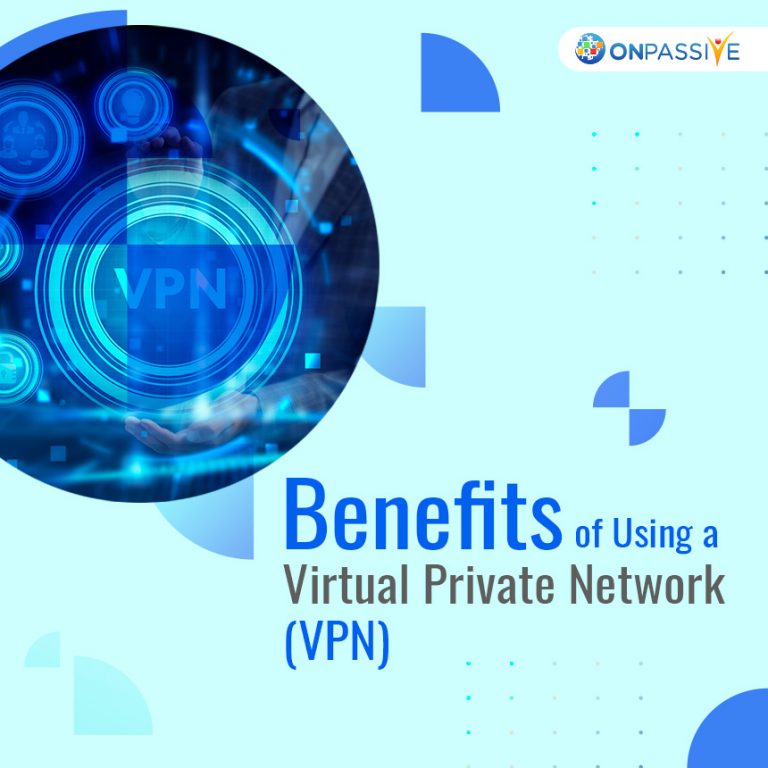
A Virtual Private Network (VPN) is a network service that provides users with online privacy and security while providing anonymity by creating a private network from a public internet connection or Wi-Fi. VPN helps by masking your Internet Protocol (IP) address making your online activities virtually untraceable.
A Virtual Private Network (VPN) is a must-have option for people who are concerned about their online privacy and security. Surfing the web through an unsecured Wi-Fi network has high chances of exposing your browsing habits and private information. In such cases, using VPN is the best solution to secure your online privacy.
VPN essentially creates an encrypted tunnel between your local network and exit node while securing your data and protects your online identity by hiding your IP address. VPN typically uses encryption to scramble data when sent over a Wi-Fi network making the data unreadable.
Benefits of using a Virtual Private Network (VPN)
The two key benefits provided by VPN at a basic level are:
- Security- VPN helps protect personal or sensitive information and other data in transit along with information sent and received by your device.
- Privacy- VPN masks your IP address, search history and location so that they can’t be tracked by internet browsers, websites, internet service providers (ISP), cable companies and others.
Some of the significant benefits of VPN are as follows:
- Escape Data Throttling
Data Throttling occurs when a customer reaches a monthly data limit, and the internet service provider (ISP) slows down the data speed or service. Using VPN is one of the most effective ways to stop data throttling because it encrypts the traffic, making it impossible for the ISP to see it preventing them from limiting their services.
- Hide your Private Information
Your online activity can be constantly tracked by the apps and websites collecting and analyzing the data. VPN helps prevent web browsers and others from accessing your connection while securing the information sent and received by you, keeping it anonymous.
- Avoid Bandwidth Throttling
When users experience slow internet speed at different times on different websites, it may be considered bandwidth throttling. The slowdown can be caused by the Internet service providers (ISP) or anyone related to administrative controls over your network.
A Virtual Private Network (VPN) encrypts your device’s internet traffic, thereby preventing people or hackers from accessing the content of your web traffic.
- Avoid Censorship in Abroad
Some VPN services help to bypass geographical restrictions. Few countries forbid or restrict access to certain websites or social media platforms or censor certain content.
Using a Virtual Private Network (VPN), you can make your traffic look like it’s coming from a different location and can have access to those restricted sites. However, the user needs to check country laws before using a VPN for this purpose.
Have access to Region blocked services like Netflix
Few VPN services will allow users to access geo-blocked content on platforms such as Netflix or other sites. A Virtual Private Network (VPN) can change users IP address enabling the content provider to think you are located in that region and thereby provide you with access to the content.
- Anonymity
Anonymity is one of the significant benefits of using a Virtual Private Network (VPN). a Virtual Private Network (VPN) allows users to access websites and web applications while retaining total anonymity. This feature makes a VPN far more beneficial than an incognito mode or web proxies.
- Remote Access
Since a Virtual Private Network (VPN) is an actual network, it can be an excellent resource for organizations, particularly in allowing employees to work remotely. The data and information stay protected no matter where the employee is located or working from.
- Affordability
Virtual Private Network (VPN) services are surprisingly affordable, and users can consider using a VPN service at any moment. Few services even come with long term VPN plans with extremely low costs. Therefore, users can choose the best service that suits their needs at affordable prices.
- Improved performance
A solid Virtual Private Network (VPN), along with other online securities, can help improve things like bandwidth and efficiency, thereby allowing for a better performance.
- Protected File Sharing
Users can share files over an extended period of time without worrying about exposing or stealing of data when using a Virtual Private Network (VPN). It provides users with an extra layer of protection, especially when sharing files.
All your data is encrypted with a Virtual Private Network (VPN). It provides you with additional services like providing users with extra security and protection from malware, among various other benefits.
Conclusion
A Virtual Private Network (VPN) provides users with better and overall security with improved performance and remote access while protecting their anonymity. Moreover, using a Virtual Private Network (VPN) can prevent companies and hackers from accessing your data, thereby providing enhanced online security for your personal information.



G Antony King
3 years ago
John Poge
3 years ago